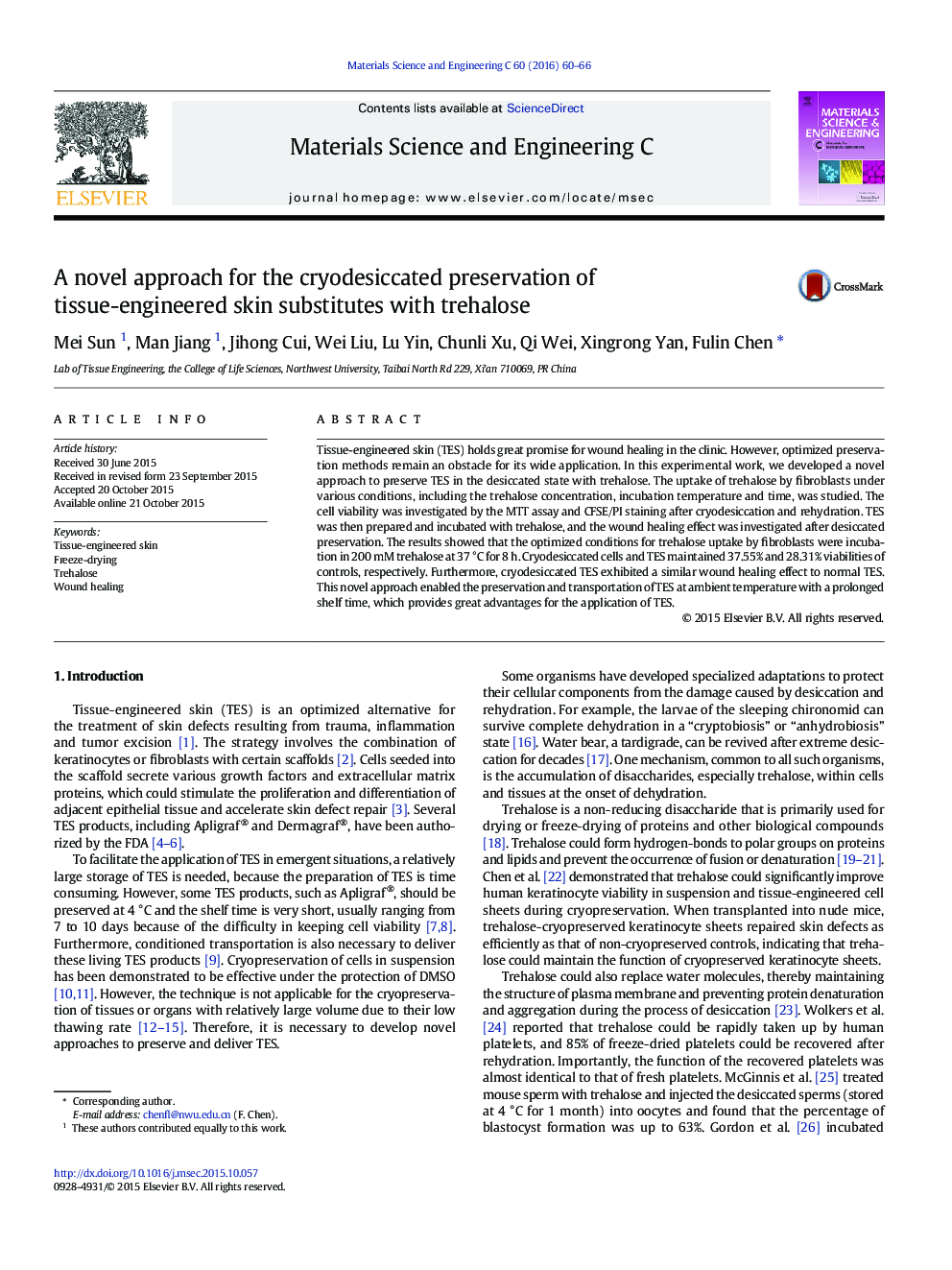| Article ID | Journal | Published Year | Pages | File Type |
|---|---|---|---|---|
| 7867750 | Materials Science and Engineering: C | 2016 | 7 Pages |
Abstract
Tissue-engineered skin (TES) holds great promise for wound healing in the clinic. However, optimized preservation methods remain an obstacle for its wide application. In this experimental work, we developed a novel approach to preserve TES in the desiccated state with trehalose. The uptake of trehalose by fibroblasts under various conditions, including the trehalose concentration, incubation temperature and time, was studied. The cell viability was investigated by the MTT assay and CFSE/PI staining after cryodesiccation and rehydration. TES was then prepared and incubated with trehalose, and the wound healing effect was investigated after desiccated preservation. The results showed that the optimized conditions for trehalose uptake by fibroblasts were incubation in 200 mM trehalose at 37 °C for 8 h. Cryodesiccated cells and TES maintained 37.55% and 28.31% viabilities of controls, respectively. Furthermore, cryodesiccated TES exhibited a similar wound healing effect to normal TES. This novel approach enabled the preservation and transportation of TES at ambient temperature with a prolonged shelf time, which provides great advantages for the application of TES.
Related Topics
Physical Sciences and Engineering
Materials Science
Biomaterials
Authors
Mei Sun, Man Jiang, Jihong Cui, Wei Liu, Lu Yin, Chunli Xu, Qi Wei, Xingrong Yan, Fulin Chen,
